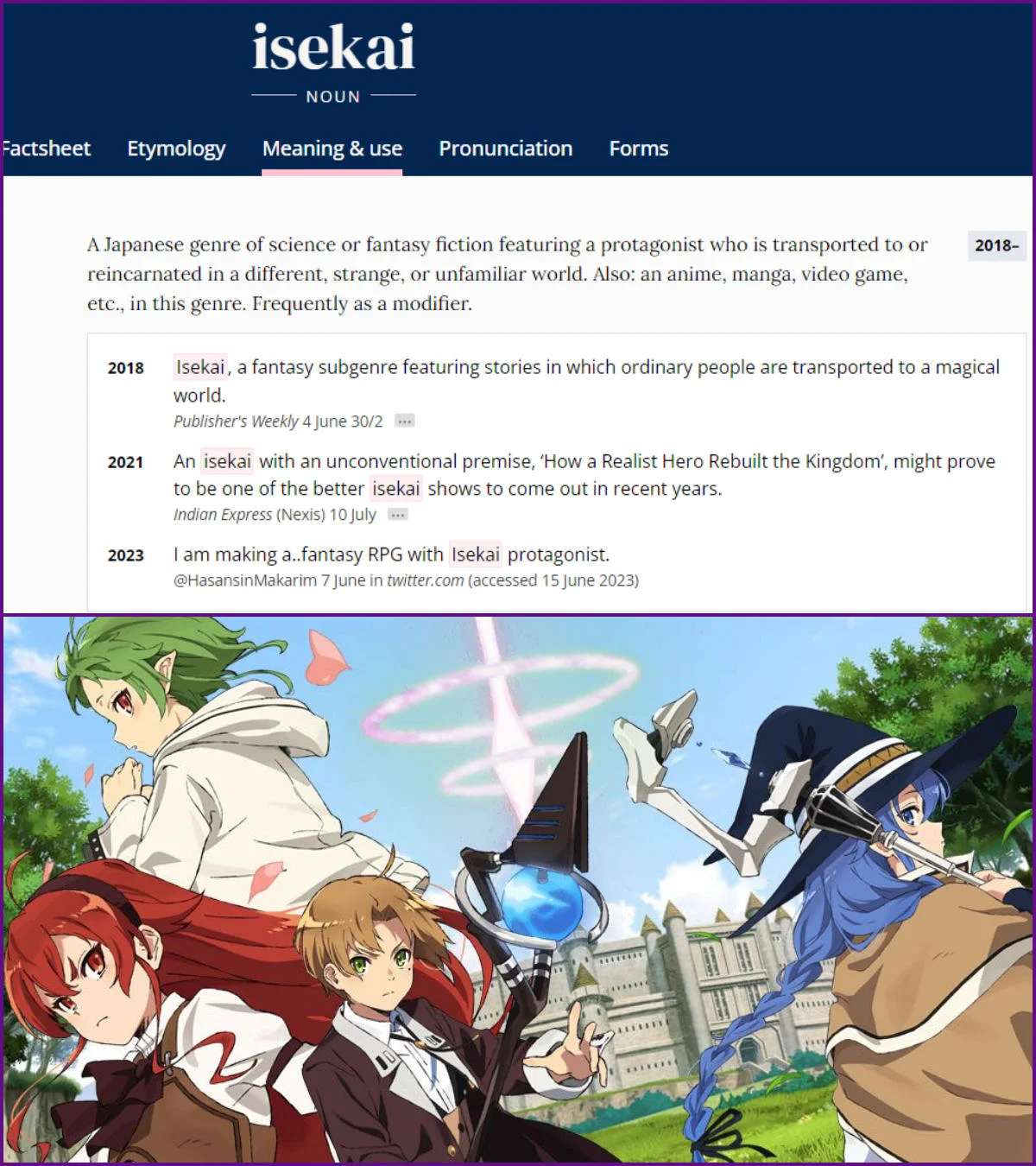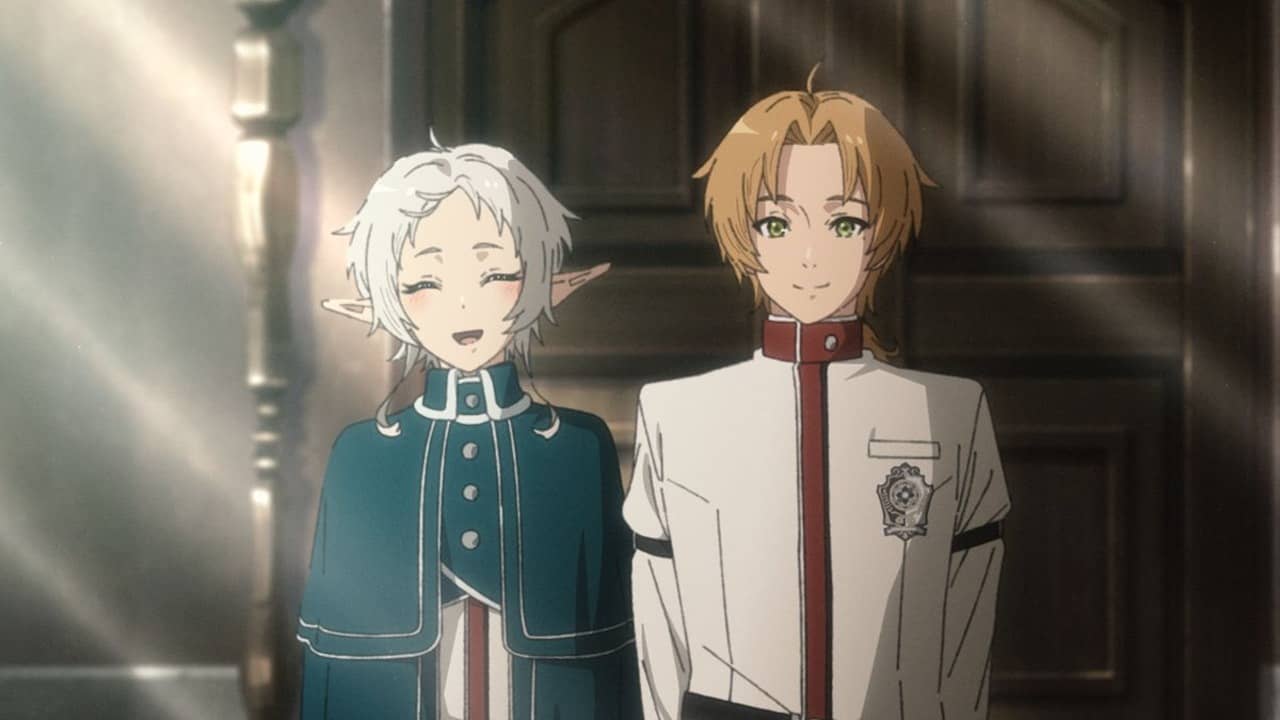Anime has undeniably surged in popularity in recent years. While manga maintains its stronghold on graphic novel sales in the U.S., anime is experiencing a parallel rise.
Whether it’s top-tier adaptations or award-winning originals, anime seems to be everywhere these days. And now, it appears that the Oxford English Dictionary is acknowledging this trend by including a definition for “isekai.”
The update was announced by the Oxford English Dictionary itself this week, as it officially added “Isekai” to its vocabulary. According to the publication, the term gained prominence in anime circles around 2018. Here’s how the dictionary defines it:

“A Japanese genre of science or fantasy fiction featuring a protagonist who is transported to or reincarnated in a different, strange, or unfamiliar world. Also: an anime, manga, video game, etc. in this genre. Frequently [used] as a modifier.”
Designated as a noun, “isekai” will ring familiar to anime enthusiasts. The genre has emerged as one of the most prominent in the industry and shows no signs of slowing down.

From classics like Digimon Adventure and Inuyasha to newer hits like That Time I Was Reincarnated as a Slime and Konosuba, isekai anime has grabbed fans for years. Thus, it feels long overdue to see “isekai” officially recognized in the Oxford English Dictionary.
This addition isn’t the only Japanese term making its way into the catalog. Words like “onigiri,” “katsu,” “kintsugi,” and more have also earned their place in the publication. With Japanese pop culture’s increasing popularity, it’s likely we’ll see even more of these terms enter the dictionary in the future.




